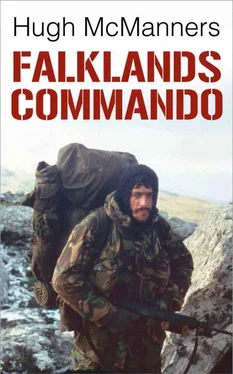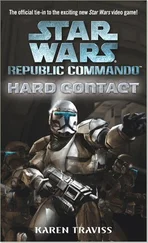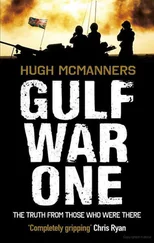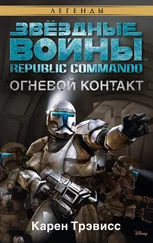Hugh McManners - Falklands Commando
Здесь есть возможность читать онлайн «Hugh McManners - Falklands Commando» весь текст электронной книги совершенно бесплатно (целиком полную версию без сокращений). В некоторых случаях можно слушать аудио, скачать через торрент в формате fb2 и присутствует краткое содержание. Город: London, Год выпуска: 2014, ISBN: 2014, Издательство: Nightstrike Publishing, Жанр: nonf_military, Биографии и Мемуары, на английском языке. Описание произведения, (предисловие) а так же отзывы посетителей доступны на портале библиотеки ЛибКат.
- Название:Falklands Commando
- Автор:
- Издательство:Nightstrike Publishing
- Жанр:
- Год:2014
- Город:London
- ISBN:978-0-992-81540-0
- Рейтинг книги:4 / 5. Голосов: 1
-
Избранное:Добавить в избранное
- Отзывы:
-
Ваша оценка:
- 80
- 1
- 2
- 3
- 4
- 5
Falklands Commando: краткое содержание, описание и аннотация
Предлагаем к чтению аннотацию, описание, краткое содержание или предисловие (зависит от того, что написал сам автор книги «Falklands Commando»). Если вы не нашли необходимую информацию о книге — напишите в комментариях, мы постараемся отыскать её.
Falklands Commando — читать онлайн бесплатно полную книгу (весь текст) целиком
Ниже представлен текст книги, разбитый по страницам. Система сохранения места последней прочитанной страницы, позволяет с удобством читать онлайн бесплатно книгу «Falklands Commando», без необходимости каждый раз заново искать на чём Вы остановились. Поставьте закладку, и сможете в любой момент перейти на страницу, на которой закончили чтение.
Интервал:
Закладка:
The power and range of modern weapons, and the ability of technology to eliminate darkness so that fighting can take place around the clock, makes modern war very much more stressful than it has been hitherto. The numbers of men suffering long-term psychological injury are thus likely to increase dramatically. Indeed, some experts feel that war and modern weapons are now so destructive that their human operators will no longer be able to cope with the strain of the modern battlefield environment – as seen in the complete disintegration of the Iraqi Army under the Allies’ air and artillery bombardment in February 1991. It is often suggested that to fight future wars, men will have to train specifically to withstand psychological as well as physical hardship, and might even need to resort to the official use of stress and fatigue-reducing drugs more sophisticated than the Benzedrine ‘uppers’ and traditional alcohol of past wars.
Unfortunately, some peacetime military men prefer not to think realistically enough about this dimension of combat. They see ‘cracking up’ as a sign of personal weakness – particularly if it comes as the result of combat. The military ‘stiff upper lip’ must not quiver, either during the fighting or afterwards. This intolerance of perceived weakness is a tribal belief which, individually and privately, many military men deplore.
It is in fact the intolerance and not the ‘cracking-up’ that is the real problem – an intolerance born of ignorance and perhaps even fear. Without an honest acceptance of the harsh realities of the modern battlefield by the military in general (and their leaders in particular), their troops may indeed crack under the strain and, like the poor Iraqi Army, be unable to fire a shot.
This military problem aside, from the perspective of the individual, the long-term effects of the stress of battle are more important than the problems facing military authorities in fighting wars. There is nothing new about these long-term effects. After the Second World War an entire generation was personally affected by their experiences. Afterwards, they put the war behind them and concentrated on winning the peace – no mean task. They were all in it together, which may partly explain their reluctance to admit having been adversely affected as individuals. This is changing, albeit too slowly to be of much benefit to the survivors of that generation.
Unlike the Second World War generation, today’s professional service men and women are a minority in the population of their countries. In the years and decades following wars, one might therefore think that their long-term, post-combat psychological problems should therefore be more easily identifiable. This however has proved not to be the case. The minority status of combat veterans has made isolation an even greater problem. In the future, combat veterans are likely to feel even more isolated from the rest of their generation. This makes them unwilling and unable to talk with civilians about either their war experiences or the psychological after-effects.
Isolation is a killer. For humans, both on the battlefield and then afterwards in civilian life, isolation can be an enemy more damaging than weapons.
This book is about modern war, fought by professional, career soldiers. It’s a new and very different sort of war from that fought by the conscripted amateurs in the past. Expertise apart, technology and politics have also changed the way battles are fought: short and very sharp rather than drawn-out campaigns.
In the British Army, the 2nd Battalion of the Parachute Regiment is the only unit since the Korean War to have fought two consecutive, full-scale modern battles in the same campaign – the Falklands War. Their experience is unique, and so in extracts from my interviews with Falklands War veterans I have drawn upon their experiences (and those of their sister Falklands battalion 3 Para) as much as possible.
In November 1990, I was invited back to the British Army Staff College at Camberley in Surrey, for a two-day study period on ‘The Realities of War’, covering topics like the effect of firepower on morale, becoming a prisoner of war and the stress of higher command. When I’d been a student there in 1984, the same lectures, given by many of the same people, had been called ‘The Stress Study’. I wondered if the change of name had any significance.
My role second time round was as a veteran of the Falklands. Apart from enjoying splendid lunches and a regimental dinner, I listened to the lectures for a second time in the company of a distinguished cadre of Second World War veterans, and then joined one of the student ‘syndicates’ for group discussion. The Staff College students were supposed to gain insight from our experience.
In the second lecture, about the Falklands, one of the speakers explained the reason for the study period name change. ‘The Stress Study’ had seemed to concentrate on the psychological problems of combat, and not on the positive things that military leaders must do to motivate soldiers to fight. Psychiatrists had become involved, and were thought by the military men to be turning combat stress into an acceptable reason for failure of nerve on the battlefield.
In changing the name to ‘The Realities of War’, the military were bringing the subject back into familiar territory, back under their control, reasserting time-honoured and hard-learned values of discipline and leadership. This was an important move, as ‘medicalising’ problems greatly reduces the chances of patients re-establishing themselves as soldiers.
Military people of all ranks know that common sense is better than psychological self-indulgence. But giving military psychiatrists the responsibility for dealing with ‘battle stress’ was to give them an actual war-fighting, combat-enhancing role that they relished. They had previously been relegated to dealing with ‘ordinary’ mental illness or advanced alcoholic difficulties, or on the periphery of criminal matters like sexual offences and family violence. But now the psychiatrists had at last found a role for themselves on the modern battlefield. They weren’t about to give it up.
Unfortunately, the post Second World War determination of US Army psychiatrists to avoid the huge numbers of battle shock casualties experienced in that war, led to the Vietnam War’s ‘DERO’ system (date of expected return from overseas). This was a major part of the creation of the huge numbers of PTSD victims that characterise the US experience of Vietnam for us today.
This unfortunate involvement of military psychiatrists continues today, and can be summed up quite simply. No self-respecting military man or woman wants to be seen by a ‘shrink’; and many of the so-called ‘stress-related’ post-combat problems are normal reactions to abnormal events – and not mental illness. Medical science hasn’t yet worked out precisely what’s going on neurologically, but even now we know that psychiatrists are not the solution. As I describe later in this book, the Army had already worked this out by the end of the First World War.
From the military point of view, it all boils down to a question of discipline. When faced with problems – or danger – individuals have the choice of reacting positively, or of being overwhelmed and crumbling under the strain. Discipline can help the individual by programming him into positive reaction – resolving the dilemma by removing the element of choice. What might be termed ‘rejection of choosing’ is what military people call being ‘well disciplined’.
It is well known that stress can be either a healthy stimulant or, if not handled correctly, a killer. The simple changing of the name of the Camberley Staff College study period was a positive military reaction to the whole question of battle stress, facing up to the harsh realities of war, rather than worrying pointlessly (and impotently) about the effects of the stress that these realities cause.
Читать дальшеИнтервал:
Закладка:
Похожие книги на «Falklands Commando»
Представляем Вашему вниманию похожие книги на «Falklands Commando» списком для выбора. Мы отобрали схожую по названию и смыслу литературу в надежде предоставить читателям больше вариантов отыскать новые, интересные, ещё непрочитанные произведения.
Обсуждение, отзывы о книге «Falklands Commando» и просто собственные мнения читателей. Оставьте ваши комментарии, напишите, что Вы думаете о произведении, его смысле или главных героях. Укажите что конкретно понравилось, а что нет, и почему Вы так считаете.












